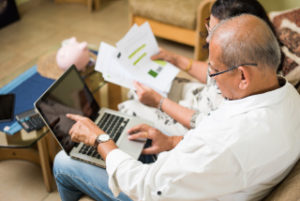Struggling financially? These resources could help
June 15th, 2022
Paying $3 for a single capsicum and over $2 for a litre of petrol can be more than a shock to the system. For some, it makes it genuinely difficult to pay the bills.
If you’re struggling financially, you may be wondering if you can dip into your super for some extra cash to help you get through.
In some very limited circumstances, it may be possible to do this – and we’ll let you know how. But there are other options we’d suggest exploring first. Like these:
Talk to your service provider or lender
If you’re having difficulties paying your mortgage, utility bills or insurance premiums, talk to your provider. You’ll find most companies have options to set up a payment plan or temporarily change your loan repayments.
moneysmart is a government website with a whole page dedicated to what to do during times of financial hardship, including how to have this conversation with your provider or lender. One important point they make is to try to take action straight away, as soon as you’re starting to struggle. It might feel uncomfortable, but it can stop things from potentially spiralling out of control.
Make the most of free counselling services
Did you know the National Debt Helpline can provide you with free financial counselling? This service is independent, confidential and won’t cost you anything. The whole point is to help you tackle your debt problems and get you back on track.
They can also put you in touch with other services if you are in crisis – for example, if you need food, legal help, or urgent accommodation.
- Visit their website for an online chat or call 1300 007 007
Accessing super early
Now you’ve explored the alternatives above, let’s look at when it may be possible to access your super early. There are two main ways:
Compassionate grounds
This is where you need money (for yourself or a dependant) to pay for things such as medical treatment, funeral expenses, or changes to your home for a disability. It’s important to know that the Australian Tax Office, not First Super, is responsible for assessing compassionate grounds applications. So they’re your go-to if you have any questions.
Severe financial hardship
This is where you can’t reasonably meet your immediate living expenses AND you’ve been receiving government income support payments for at least 26 weeks (you may need to prove this). These payments are limited to between $1,000 and $10,000 and will be taxed if you’re under 60. You can find out more on our website.
Need help?
Contact our Member Services Team if you have questions about your super.

